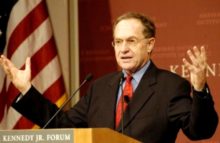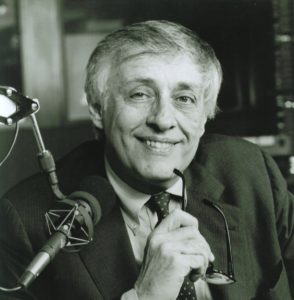The question about Alan Dershowitz persists or grows stronger: Is he a conservative liberal or vice-versa? His two-sidedness is as evident in this recent conversation as it has been in his many years of public commentary and advocacy. The man is hard to classify but always a delight to talk with and – when it comes to his sheer mastery of relevant detail – as persuasive as one of the best lawyers in the world. In fact that is just what he has been, pleading before courts in the Soviet Union, Russia, the U.K. as well as before our Supreme Court, where at least one of his former Harvard Law students now sits in judgment. We had the pleasure of getting together again to discuss his latest book, though inevitably this led to other matters, including our shared memories of the adjoining neighborhoods of Brooklyn in which we both grew up.
The new book, “Terror Tunnels,” is a fact-laden and energetic exercise in denunciation. This time the linked targets are Hamas, American academics and the ever-growing BDS campaign. Good-willed, always engagingly and expressively opinionated while remaining quick and certain of mind, Dershowitz remains a litigator around the world, a Jewish activist and an always interesting, while sometimes confounding public presence. Thus a good – if not fully consensual – time was had by both host and guest.






